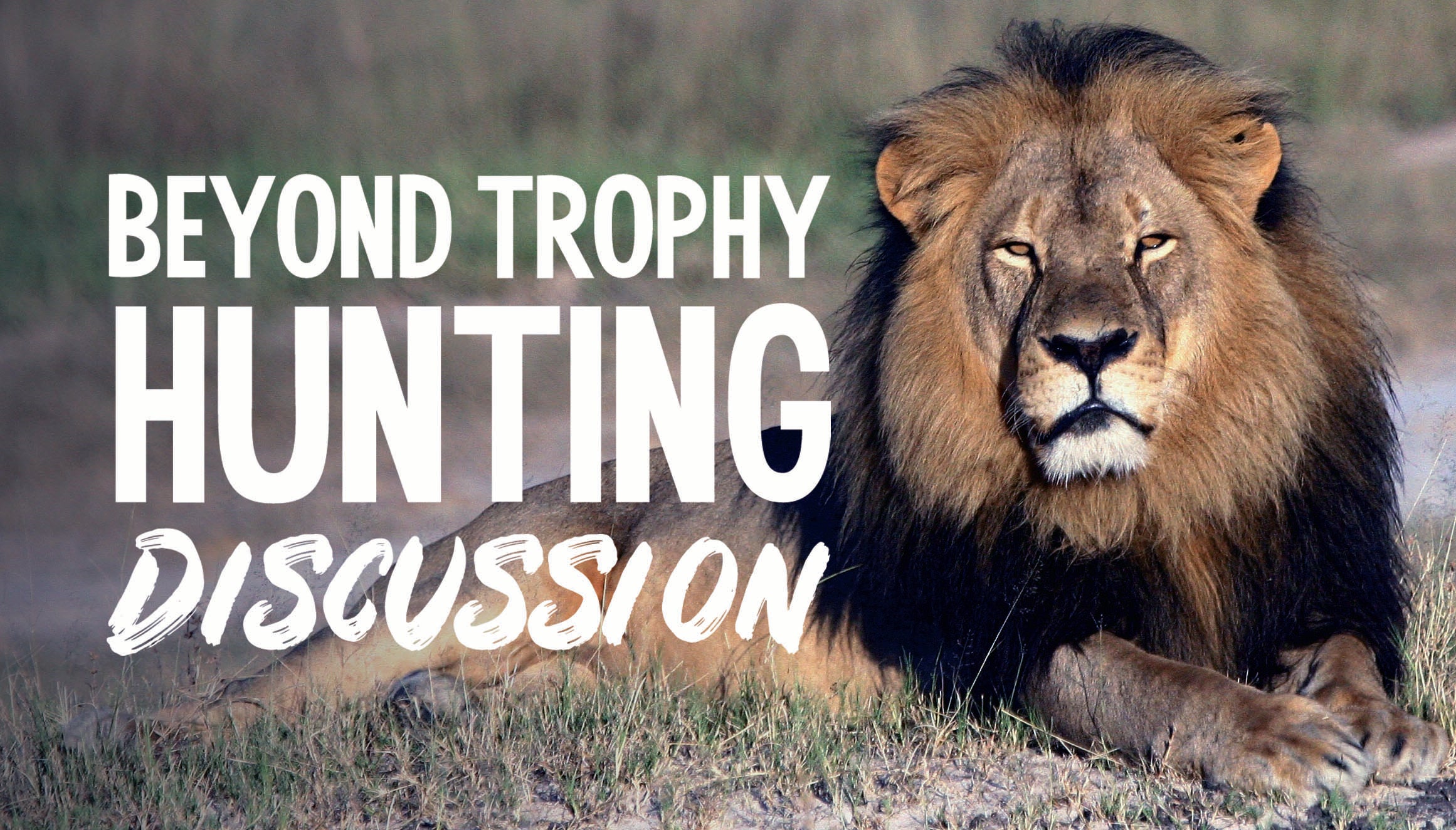The time has come to stop African trophy hunting
Will Travers, the Executive President of Born Free, on why the conservation charity is staging an event to explore alternatives to trophy hunting

Your support helps us to tell the story
From reproductive rights to climate change to Big Tech, The Independent is on the ground when the story is developing. Whether it's investigating the financials of Elon Musk's pro-Trump PAC or producing our latest documentary, 'The A Word', which shines a light on the American women fighting for reproductive rights, we know how important it is to parse out the facts from the messaging.
At such a critical moment in US history, we need reporters on the ground. Your donation allows us to keep sending journalists to speak to both sides of the story.
The Independent is trusted by Americans across the entire political spectrum. And unlike many other quality news outlets, we choose not to lock Americans out of our reporting and analysis with paywalls. We believe quality journalism should be available to everyone, paid for by those who can afford it.
Your support makes all the difference.Virginia McKenna OBE: “History will surely condemn trophy hunting as a cruel and malignant activity. We should applaud all those who are helping bring it to an end, and who look Beyond Trophy Hunting.”
On the 25th November, the Hunting Trophies (Import Prohibition) Bill, a Private Members Bill championed by Henry Smith MP and supported by the government, successfully passed its second reading in the House of Commons. If ultimately successful, it will prohibit the import of hunting trophies from an extensive list of species into the UK. It’s ambitions reflect the views of the majority of citizens, as confirmed by poll after poll, who believe that trophy hunting is a practice that they can no longer tolerate on moral grounds.
To be clear, the Bill would not prevent the trophy hunting of those species by UK citizens in parts of Africa or elsewhere. It would prevent the import of trophies.
It is a process that has my full support but, rightly, it has stimulated a wider discussion about what the future might look like.
In the last 15, maybe 20, years I have heard so many people who tolerate or even support trophy hunting, say they don’t like it. They say it is a necessary evil. They justify their tolerance on three counts.
They say that it brings in money for conservation. They say that it supports the setting aside of large areas of wild land for wildlife, preventing that land from being used for other purposes. They say that it brings meaningful financial and other benefits to local communities, the communities on whose land trophy hunting is practiced.
And it would be wrong to say that they are entirely incorrect.
There are studies that enumerate those benefits, including one published quite recently by the African Leadership University, which used available data and several case studies to evaluate the contribution trophy hunting makes to the wildlife economy of Africa. And yes, at least on paper, evidence suggests that local community members in trophy hunting countries such as Zambia, Zimbabwe and Namibia may benefit by the equivalent of a few dollars per person per year.
However, in my opinion, far from resolving the issue, their findings beg one, fundamental question. Is this the best we can do? Isn’t there a better way?
After decades of trophy hunting, the wildlife departments of a number African countries are on their knees, starved of resources, fuel and equipment. Many indigenous people from local communities who share their lives with large and sometimes dangerous wild animals, remain in grinding poverty, marginalised and without choice or opportunity.
And beyond the practical reality, key moral questions still remain:
Is it acceptable for so many people to endure such hardships; and is it acceptable for some of the world’s most iconic species to be killed by a wealthy, usually male, western elite - for ‘fun’?
The dividing lines between those who practice and advocate for trophy hunting and those who abhor it to their very core, cannot be under-estimated.
On the 15th of December, at the prestigious Royal Geographical Society in London, a panel of thought-leaders will seek to find a way forward. Speakers will include experts in innovative finance, community development, environmental stewardship and policy, and wildlife-based tourism. They will be joined by an in-person and online audience to look Beyond Trophy Hunting, to imagine a post trophy hunting landscape that delivers greater, more sustainable benefits to nature, wildlife conservation and human opportunity.
It seems there is one thing that many of those in favour of trophy hunting and those opposed to it can agree on - there has to be a better way.
For in-person and online tickets for Beyond Trophy Hunting (December 15 RGS, London) go to www.bornfree.org.uk
Join our commenting forum
Join thought-provoking conversations, follow other Independent readers and see their replies
Comments